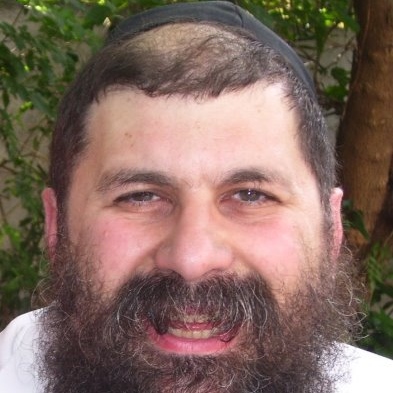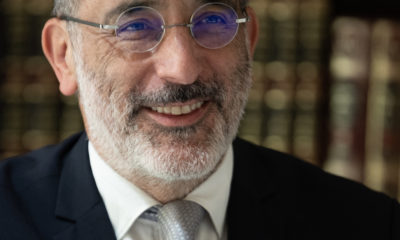
Parshot/Festivals

Rabbis have their work cut out for them
A young man walks into the rabbi’s office and asks if he may speak to him for a few minutes. Apparently, he is considering a career in the clergy, but doesn’t know exactly what it entails and his father has suggested that he chat with the family’s spiritual leader.
“Rabbi,” the boy says, “I know what you do on Shabbat when you are busy with services at shul, but what exactly do you do the whole week, from Sunday to Friday?”
“Young man,” the rabbi says, “with questions like that, you’re cut out to be the chairman of the shul’s committee, not the rav of the community!”
So, what exactly have South Africa’s rabbonim been doing since mid-March, when services in shuls ceased, first by choice, then by law? I can assure you that we have definitely not been on holiday for the past five months. In fact, we have most likely been working harder than ever. The doors to our sanctuaries may have been shut, but our shuls have most certainly been open and servicing their communities.
The past half year has afforded us all the opportunity to re-examine and re-assess many of our observances and activities. We concentrated on the essence rather than the optional extras in each case. Thus we had a pure seder, focused on reliving the exodus without the usual social aspect; we celebrated the giving of the Torah on Shavuot at home, without the huge dairy spreads at shul; we consecrated the union of two predestined souls under the chuppah, sans the traditional glamour of a wedding; a bris was about bringing the newborn into the covenant of Abraham, minus the lox and bagels.
Being a rabbi without a shul was absolutely awful. Many of us cried bitter tears during our last service before closure in mid-March. I personally visited the empty building frequently, but the pain of hearing my footsteps reverberate in an empty sanctuary pierced my heart over and over. I felt compelled to walk up to the holy Ark and apologise for our extended absence, while promising we would be back. In my imagination, I could hear the sound of sobbing, devastated Torahs behind the curtain, crying out in the pain of abandonment.
So, we rabbonim had to think about and re-examine the essential nature of our role. What are pure, unadulterated rabbinics?
It’s to be the father and mother of a community. To look after congregants and care about their physical, emotional, and spiritual welfare. It’s to cheer up the lonely, those without family in the country or without any family at all. It’s to keep a sense of connection in a community.
Over the past difficult months, it was also about bringing cheer and a smile, to restore morale to a community suffering from severe stress and in many cases temporary and even permanent loss of income. It was to help the sick; to support those who had just tested positive and were living with fear, even if asymptomatic; to officiate at (far too many) funerals, comfort the bereaved, and conduct memorial services. All of this from a distance, for safety and legal reasons.
Services and shiurim also continued (and even increased) through technology. Even the most Zoom-challenged among us had to quickly master the video conferencing application. And also learn how to protect ourselves from so-called Zoom-bombing attacks that threatened to disrupt our online functions.
Thank G-d, our shuls are now reopening. But the new normal is nothing like what we have been used to. Legal restrictions on the maximum length of services and number of concurrent worshippers are challenging, particularly as we approach our peak attendance high holiday season. We are all having to think creatively to accommodate our communities accordingly.
Communal singing is apparently a huge risk, and choirs have been banned. Even the congregation raising its voice in loud prayer is dangerous and forbidden. Of course, we are going to be sitting physically distanced, our faces obscured by masks. (No talking in shul?!)
What are we going to be left with? Pure, unadulterated, essential prayer. A huge paradigm shift for communities used to passive, vicarious prayer, sitting in the pews enjoying the chazzan and choir perform. We all have to become active prayers. We need to learn to shift from mere lip service to engaging with our prayer books, siddur or machzor, to true kavanah when the meaning of the holy words resonate with our souls.
So, if we haven’t been on holiday for the past half year, we rabbis definitely have our work cut out for us during the month of Tishrei ahead.
There were emotional tears of joy streaming down our faces on Rosh Chodesh Elul when shuls around the country cautiously resumed services. Behind the curtains of the Holy Ark, I’m certain our Torahs were softly crying with elation.
Wishing you shana tova. May the year ahead bring us revealed blessings in the form of health, safety, and prosperity.
- Rabbi Yossi Chaikin is the rabbi at Oxford Shul, and the president of the South African Rabbinical Association.










